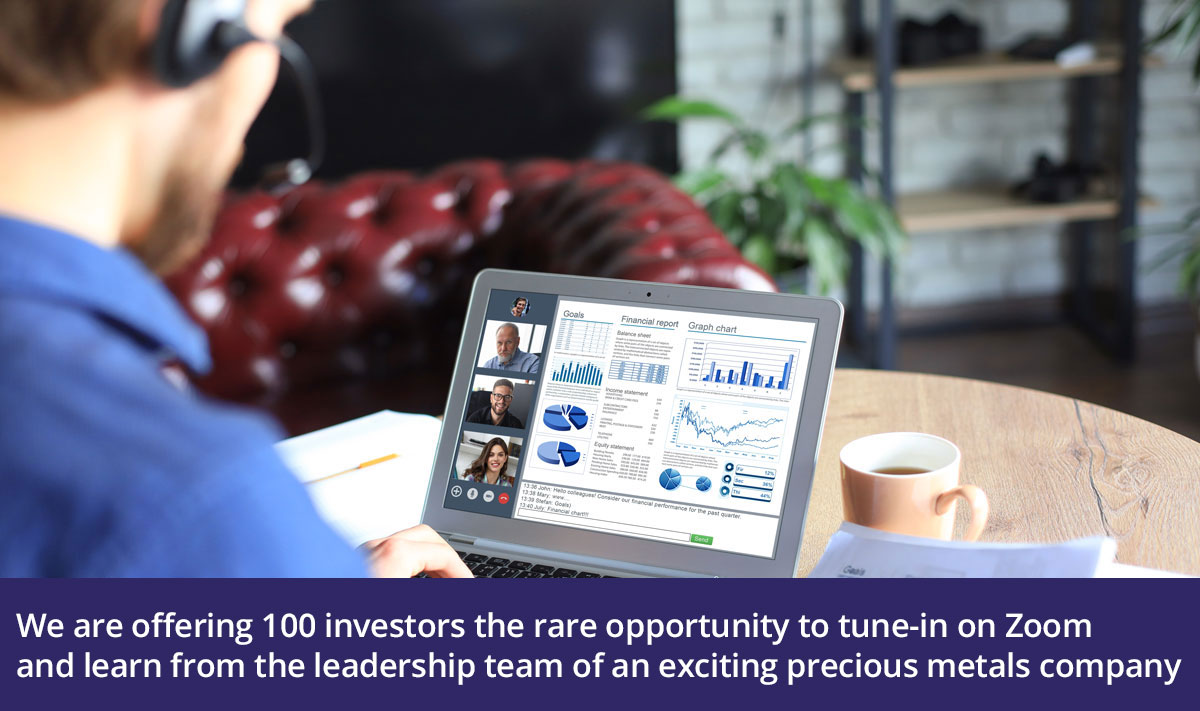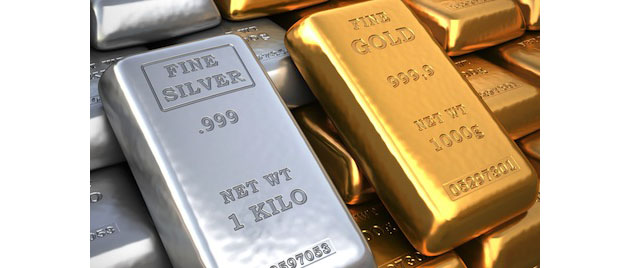The Gold Report: How do you account for falling commodity prices?
Steve Palmer: The strong U.S. dollar is driving commodity prices down. The dollar-based slide is magnified by the summer doldrums and the lack of liquidity in many of the junior names. There is also a widespread perception that the Chinese growth rate is slowing, which is negatively impacting the value of commodity stocks in general.
But the reality is that, even though the growth rate in China has declined to 7%, it is growing from a much higher base, and this still translates into strong demand for commodities.
TGR: Why does the strong dollar drive down commodity prices?
SP: Commodities are priced in U.S. dollars. As the U.S. dollar exchange rate goes up, commodities become more expensive for buyers and demand falls. There is an inverse correlation between the U.S. dollar and commodities, particularly gold, but also energy.
TGR: If the U.S. dollar keeps getting stronger, and producers cannot afford to buy industrial commodities, then the supply of these commodities is going to increase, which will also drive prices lower. Between the strong dollar effect and its consequent supply/demand responses, it sounds like the perfect storm is brewing. If the Federal Reserve uncaps interest rates, will that help the energy and gold markets weather the storm and recover?
SP: Historically, the Fed has always waited until commodity prices are rising before increasing interest rates. It raises rates to cool a strengthening economy, so that prices do not inflate. We are longer away from interest rates rising than most people think, in my view.
"When the junior space is depressed, it is a good time to pick up shares."
However, I do believe that the U.S. dollar is poised to weaken, which should have a positive impact on commodity prices. Accelerating global growth in 2016 will also increase demand for commodities and have a positive impact on prices.
TGR: What would be the main catalyst for a weakening dollar?
SP: The U.S. was among the hardest hit countries in the global financial crisis. The Fed provided a significant amount of stimulus to keep the battered economy from imploding. The super-stimulated U.S. economy has been leading the world since 2008. Investors have flocked into large-cap U.S. stocks and the perceived safe haven of the U.S. dollar. But as Europe and emerging markets around the world recover and growth strengthens in these regions, money will start to flow out of the U.S. and into the faster-growing economies. There will be less demand by investors looking for the safe haven of the U.S. dollar. This should be positive for commodity prices. Commodities are cyclical.
TGR: The AlphaNorth Resource Fund is stacked at about 17% energy and 33% precious metals. Why have you weighted your portfolio like that?
SP: There is no magical formula in the weighting. It's just how things have shaped up given the performance of our investments and the individual security selection from our bottom-up fundamental analysis work. However, we do like to keep the portfolio diversified across various commodities.
TGR: As an investor, how would you pick out the potential survivors?
SP: We identify projects with lower risk and/or higher impact projects. We like to back strong management teams. We stick with well-financed companies. When the junior space is depressed, it is a good time to pick up shares. Commodities are very cyclical, and when the markets turn back up again, the share price returns will be quite dramatic.
TGR: Let's talk about the precious metals. Have you made any new investments in the gold space?
SP: We recently purchased Continental Gold Inc. (CNL:TSX; CGOOF:OTCQX), which has performed well. The stock did pull back a bit due to short-term gold price weakness, but we view that as temporary. Continental has a very high-grade, advanced deposit in Colombia. Its mining operation is more economic than most, given the high gold grades. Continental trades at a discount to its comps, and there are catalysts on the near-term horizon, such as the expectation of a mining permit.
"The U.S. dollar is poised to weaken, which should have a positive impact on commodity prices."
It is important to realize that lower-grade deposits do not have much leeway in terms of commodity pricing. The low-grade mines can be easily squeezed if gold falls further. But Continental has very high grades and much more margin. And when the U.S. dollar starts to sink, I expect gold to rise, at least modestly, which will generate nice premiums for Continental shareholders.
We also have a position in Standard Tolling Co. (TON:TSX.V), which is ramping up to be a processor for gold companies in Peru. It does not have any exploration risk, except the risk that goes along with processing ore for the typical gold company. Management has recently raised money to start up operations in the near term. Standard Tolling looks to be earnings-positive soon. And it trades very cheaply compared to what it could earn.
TGR: How is the firm's stock price performing?
SP: Terribly. Everything keeps going down in the current environment, often regardless of fundamental progress. Fundamentals do not seem to matter right now. Standard Tolling managers say that earnings next year could be greater than the current share price, so there is a lot of room for upside. Low-priced commodity stocks have great potential for rewards.
TGR: How are investors being treated in the recent merger and acquisition (M&A) transactions in the junior gold space?
SP: We have held positions in two small companies, Temex Resources Corp. (TME:TSX.V; TQ1:FSE) and Mega Precious Metals Inc. (MGP:TSX.V). Both are being taken out by larger companies. Mega Precious Metals was recently purchased by Yamana Gold Inc. (YRI:TSX; AUY:NYSE; YAU:LSE). And there are competing bids on the table for Temex: The most recent offer is from Lake Shore Gold Corp. (LSG:TSX). It is a good sign to see M&A in this space.
TGR: Let's talk about energy. Who do you like there?
SP: We try to minimize the impact of commodity prices in the energy investment equation by focusing more on international names with the potential for high-impact discoveries. We have been invested in Sintana Energy Inc. (SNN:TSX.V) for quite a while. Sintana has partnered with Exxon Mobil Corp. (XOM:NYSE), which is farming in on one of Sintana's properties in Colombia's Magdalena Basin. Exxon is funding 100% of the cost to drill two wells with Sintana. The venture is midway through sinking the first well. Drillers have entered the main target zone. When a company like Exxon spends tens of millions of dollars to drill a couple of wells, it is chasing something significant. For a company like Sintana, which has a market cap of about CA$13 million (CA$13M), a discovery would be a very material development. Management believes it has very high odds of success based on the seismic testing that it has done and the other drilling in the area.
TGR: How has Sintana's stock been performing?
SP: Various externalities have negatively impacted the shares. The price of oil has been a negative, and a major shareholder sold out of its position. The doldrums and the downswing in the junior markets have stalled the share price.
TGR: How long do you think it will take for the Exxon magic to elevate Sintana's share price?
"Accelerating global growth in 2016 will also increase demand for commodities and have a positive impact on prices."
SP: Sintana and Exxon are drilling through a very large shale interval, which they plan to split into different sections. Each section will be independently fracked and tested. We hope to get initial results in the next month or two. Sintana retains a 30% interest in the project. Management believes there could be up to 200 million barrels net to Sintana. On a per barrel (bbl) basis in the ground, at a low-end price of $5/bbl, that is $1 billion of value to Sintana, versus a CA$13M market cap. Even at $2/bbl, the return is worth $400M to Sintana. The numbers are pretty silly given where Sintana shares are currently trading.
TGR: I see that Sintana has an interim agreement with Mobius Resources. What can you tell us about that?
SP: Mobius is a shell with cash. It provides an alternative way to obtain financing, as opposed to doing a private placement in the market. Given the state of the junior market, the easier route is for Sintana to merge with Mobius. It is a cheaper way of financing.
TGR: What other energy juniors have your attention?
SP: We have owned a position in Blackbird Energy Inc. (BBI:TSX.V) for a long time. Blackbird drilled two horizontal wells earlier this year in the Montney. Blackbird has a sizeable land position there. It is gearing up to drill two more wells at a lower cost than the first two wells, having learned a few lessons from that round of drilling and benefitting from tougher times for the drilling companies these days. Blackbird is well financed. It has approximately $24M in cash, which is about 50% of the company's market cap.
TGR: What is the story going forward for domestic energy juniors in Canada?
SP: There is no way to gloss over the issue: It is a tough environment. Many of the juniors have pulled back on capex and are acting conservatively for the near term. They just do not have the cash flow in this pricing environment to reinvest in exploration and development. Drilling activity has fallen significantly.
TGR: Thanks for your time, Steve.
Steve Palmer is a founding partner, President and Chief Investment Officer of AlphaNorth Asset Management and currently manages the award-winning AlphaNorth Partners Fund, AlphaNorth Growth Fund and AlphaNorth Resource Fund. Prior to founding AlphaNorth in 2007, Palmer was employed as vice president at one of the world's largest financial institutions, where he managed equity assets of approximately CA$350M. Palmer managed a pooled fund, which focused on Canadian small-capitalization companies, from its inception to August 2007, achieving returns of 35.8% annualized over a nine-year period, which ranked it No. 1 in performance by a major fund ranking service in its small-cap, pooled-fund category. Palmer earned a bachelor's degree in economics from the University of Western Ontario and is a Chartered Financial Analyst.
Want to read more The Gold Report interviews like this? Sign up for our free e-newsletter, and you'll learn when new articles have been published. To see a list of recent interviews with industry analysts and commentators, visit our Streetwise Interviews page.
DISCLOSURE:
1) Peter Byrne conducted this interview for Streetwise Reports LLC, publisher of The Gold Report, The Energy Report and The Life Sciences Report, and provides services to Streetwise Reports as an independent contractor. He owns, or his family owns, shares of the following companies mentioned in this interview: none.
2) The following companies mentioned in the interview are sponsors of Streetwise Reports: Continental Gold Inc. The companies mentioned in this interview were not involved in any aspect of the interview preparation or post-interview editing so the expert could speak independently about the sector. Streetwise Reports does not accept stock in exchange for its services.
3) Steve Palmer: I own, or my family owns, shares of the following companies mentioned in this interview: None. I personally am, or my family is, paid by the following companies mentioned in this interview: None. Funds managed by AlphaNorth Asset Management have investments in companies mentioned in this interview. I was not paid by Streetwise Reports for participating in this interview. Comments and opinions expressed are my own comments and opinions. I determined and had final say over which companies would be included in the interview based on my research, understanding of the sector and interview theme. I had the opportunity to review the interview for accuracy as of the date of the interview and am responsible for the content of the interview.
4) Interviews are edited for clarity. Streetwise Reports does not make editorial comments or change experts' statements without their consent.
5) The interview does not constitute investment advice. Each reader is encouraged to consult with his or her individual financial professional and any action a reader takes as a result of information presented here is his or her own responsibility. By opening this page, each reader accepts and agrees to Streetwise Reports' terms of use and full legal disclaimer.
6) From time to time, Streetwise Reports LLC and its directors, officers, employees or members of their families, as well as persons interviewed for articles and interviews on the site, may have a long or short position in securities mentioned. Directors, officers, employees or members of their families are prohibited from making purchases and/or sales of those securities in the open market or otherwise during the up-to-four-week interval from the time of the interview until after it publishes.





























































